Local Theatre Takes On Conformity With Battle Against Musical Armageddon
Discovered online, a theatre company is bringing a viral play to local audiences.
Taking place at KordaZone Theatre (located at 2025 Seminole Street) on June 13th, Korda Artistic Productions will present The Guy Who Didn’t Like Musicals. Combining comedy with sci-fi horror and… well, musicals in addition to playing on genre tropes, it fits in perfectly with the theatre company’s trademark humour, charm and wit.
Selected as part of Korda’s first-ever public call for productions, its director was already convinced it would work perfectly.
“Starkid Productions, the original group that put on the show, has gained quite a notable cult following on the internet,” said Jeremy Burke. “They post recorded versions of all their original shows to watch on YouTube, and a lot of people anticipate the release of their next show. I remember in my younger years, I was a fan of their early low-budget comedies. When I revisited them I found a bunch of their newer shows, The Guy Who Didn’t Like Musicals among them. It was easy to fall in love with.”
Created by the same company that produced A Very Potter Musical and Holy Musical, B@man, The Guy Who Didn’t Like Musicals takes place in the fictional city of Hatchetfield. Although things seem normal at first, people soon begin singing uncontrollably before dancing in the same way: It isn’t long until a musical pandemic takes hold. Eventually, the task of saving everyone from a melodical dystopia falls to average guy Paul (who doesn’t like musicals) and his friends, who must fight for humanity’s future.
It’s this off-kilter story that Burke believes audiences will connect with.
“It’s brimming with personality, genre awareness, fun and funky music,” he said. “It’s all of those reasons that it’s a perfect fit for Korda. Korda has a history with camp and with sci-fi horror, with play-ups of genre and meta-humour. I really see this show as a new take on the classic feel of a Korda comedy musical.”
Once accepted by the theatre company, Burke began assembling his crew. Wanting a group he knew would embrace the play’s storytelling, one of his first steps was to bring on Matt Vriesen as Music Director. Holding the same role for productions of Rocky Horror Show and Something Rotten, his style matched perfectly as they dove into humour head first.
From there, the director sought out and incorporated another important aspect of his production.
“Julia Pastorius choreographs with such personality,” said Burke about the musical’s choreographer. “I trusted her to build choreography that not only helped tell the story, but was funny itself.”
With his team in place, conversations then focused on what was important to the show, elements that worked well, things they wanted to see more of, and how to bring the play from a series of funny moments to something with even more cohesiveness and punch.
Holding auditions in February, roughly 40 actors read for parts over two days. Typically doing Shakespeare or small dramas, the director looked to fill 10 parts and was thrilled by the turnout.
Meeting so many talented artists during this process had its positives and negatives, however.
“One of the biggest challenges was that I wish I could have cast twice the cast size,” said Burke. “It means we could really get the best people for these roles and this show, though. I expected the titular ‘Guy’ Paul to be difficult to cast. He has to carry the show with what some may read on the page as a lack of personality, so we knew we needed someone who could pull everything possible from between the lines to bring this guy to life. We were very happy to cast Brett Hallick, who can find the energy in any moment.”
Rounding out the cast with Jenna Fisch as Emma, Nicole Clark as Charlotte, David Sivak as Sam/General McNamara, Tim Maitland as Ted, Alex Trinier as Billie, Cavelle Doucet-Lefebvre as Professor Hidgens/Mr. Davidson, Aria Talbot-Benvenuto as Alice/Ensemble, Sydney White as Greenpeace Canvasser/Zoey/Ensemble and Natalie Vriesen as Melissa/Coffee Jerk/Ensemble, rehearsals began in March.
As with most musicals, these sessions initially revolved around dance and music. Ready to experiment with each character, Burke’s cast came to the project with open minds. Aware that Starkid’s production is available and well-known, the director encouraged his actors to break away from any pre-conceived notions based on this.
Making the absurd story more personal to themselves, everyone used their own experiences to inform many decisions.
“It’s a heightened world where big choices are really rewarding if we commit to them in a genuine way,” said Burke. “The cast continues to surprise me with fits of laughter at their character decisions. It’s the kind of show where any quirky personality trait that your uncle or someone you met at the dentist has is up for grabs. A lot of these characters are coworkers with their own lives. The cast brought all that knowledge of the larger personalities from their own lives to fill in all that richness.”
Indeed, showcasing humour similar to office comedies of the early aughts, much of the musical relies on character humour. How they see the world, speak about it and fold under pressure create funny situations for audiences. Navigating further through the story, meta script elements are also highlighted with genre and stage show tropes in general: Containing an almost equal mix of character and situational comedy, Burke is excited to present such broad humour alongside niche references for theatre lovers (or haters.)
Beyond this, the play also plays upon its strengths with a live band at each performance.
“I knew when I pitched the show for the 2025 season that I wanted a live band,” said the director. “The music is all written to be played by just 4 musicians so we knew it would be doable without cutting any corners. There is nothing like a live band for a musical. It entirely alters the vibe of the room, of every song and allows us the freedom to make tweaks and refocus some songs. We’re happy to be putting on our own spin on a few of the tracks, raising the bar (and the volume) on some of the rockier songs.”
Putting an ironic bow on the show where characters don’t realize they’re in a musical, band members are also on a balcony above the stage. Mentioning the song La Dee Dah Day as an introduction to the musical infection, Jeremy loves many more that poke fun at musical theatre with Sam Bourque on keys, Aaron Gasparini on guitar/synth, Graham Dolsen on bass and Taylor Unis on drums adding some new surprises for those already familiar with the play.
It’s something the director maintains wouldn’t be possible without such dedicated performers.
“I truly cannot stress how much I value having these four extremely talented musicians along for the ride,” he said. “It was clear from our first sing-through with the band that the cast fed off of their energy. It electrifies the whole room and allows so much freedom for the actors to put their own spin on musical moments. Personally, I’m really excited to show audiences the band’s takes on Join Us (And Die) and America is Great Again. These are both songs with bigger rock and roll presence, and I love hearing the band’s instincts to dig into that a lot.”
Despite appearing silly on the surface, the musical also approaches themes like conformity, self-identity, and standing up for your beliefs. Reframed through the lens of a sci-fi horror musical, these ideas are now more relevant than ever.
Even the simple act of declaring one’s desire is crucial in The Guy Who Didn’t Like Musicals.
“In a lot of ways, Paul is content with a drab life where he’s kind of asleep,” said Jeremy. “It takes a horror plot directed specifically at him for him to realize that he should get up and grab life by whatever it you grab life by. There is a rather endearing love story buried in the horror of the show and (surprise, surprise) some political undertones. I don’t mean to push the more serious messages of the play too far, but there is something to be said about a hive-mind with no humanity trying to generate and regurgitate its own bastardization of a musical. Especially in a real-life world where a robot can spew out some soulless art if you simply give it a prompt.”
The Guy Who Didn’t Like Musicals will be staged at KordaZone Theatre on June 13, 14, 15, 19, 20, 21, 26, 27, and 29. Showtimes are at 8 p.m. except for a 2 p.m. matinee on June 15. General admission is $30 with a $5 discount for seniors and students: Tickets can be purchased online or at the door (cash and debit only.) June 19 and 26 will also be pay-what-you-can and scent-free performances, respectively.
According to the director, it’s a play people won’t want to miss.
“It would be an undersell for me to say that it will be a really fun time,” said Jeremy. “The show is electrified, surprising at every turn, punchy and sarcastic, self-aware and unashamed to be all of it. It has absolutely epic lights like you haven’t seen at Korda, powerhouse vocalists, camp, spectacle ,and funny endearing characters. But first and foremost, you will be laughing – sometimes with us, and sometimes at us. That’s exactly what we want for you though.”
More information about Korda and news about future shows can be found at their website.







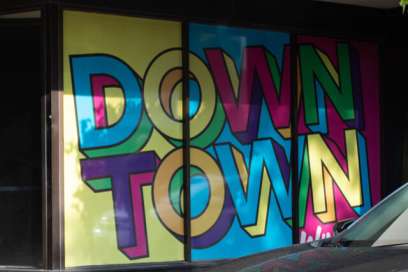

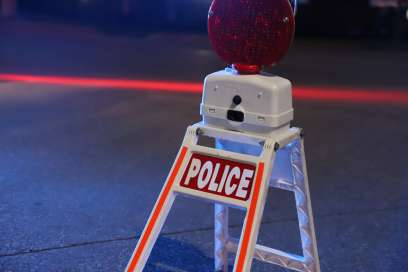


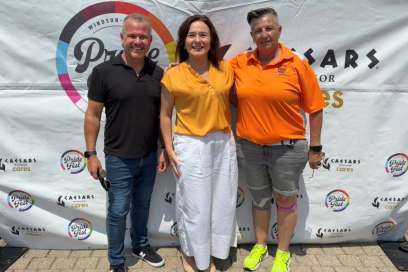
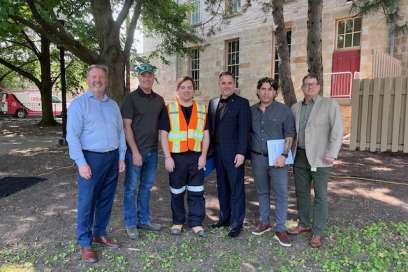



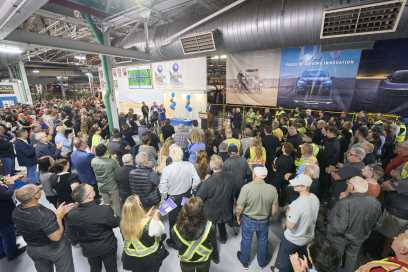


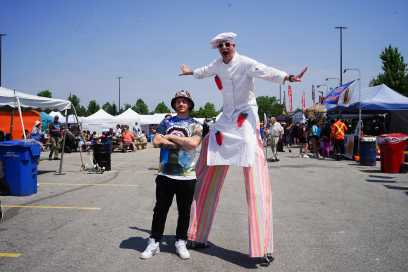




Comment With Facebook